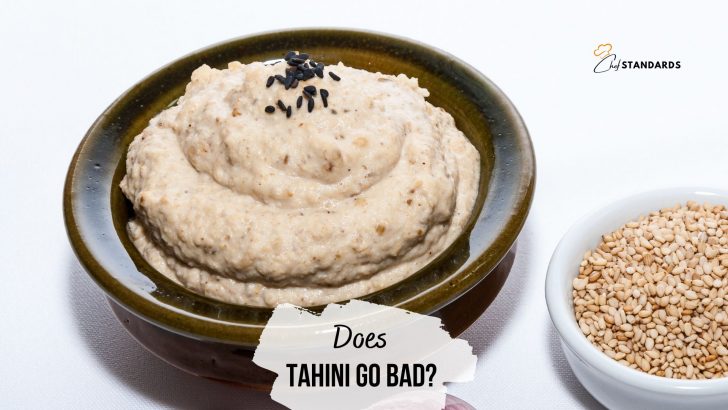Although it is a staple of Middle Eastern cuisine and most widely used exactly in that part of the world, it is also quite popular in many other parts of the Globe, including the US.
Generally speaking, tahini is a really simple condiment made from just two main ingredients. Those two main ingredients include sesame seeds and oil (most of the time).
More precisely, tahini is a sesame seed paste made by grinding sesame seeds with oil until it reaches a smooth texture.
I also have to emphasize that tahini can be made from raw and roasted sesame seeds. Tahini made from raw seeds tends to be stronger in taste than ones made from roasted seeds.
Tahini is somewhat similar to peanut butter and it is mostly used to improve the taste of baba ganoush and hummus. It can also be used in both savory and sweet dishes including fruits, salads, cheesecakes, etc.
But, when you use any type of food including tahini, some important questions arise and one of the most important is “Does tahini go bad?”. Yes, tahini paste does go bad although it has a relatively long shelf life.
If you don’t know some important facts about the tahini itself, storage tips, as well as signs of spoilage, you will be at higher risk of ending up with spoiled tahini.
In order to avoid that, I warmly recommend you to continue reading.
Does Tahini Go Bad?
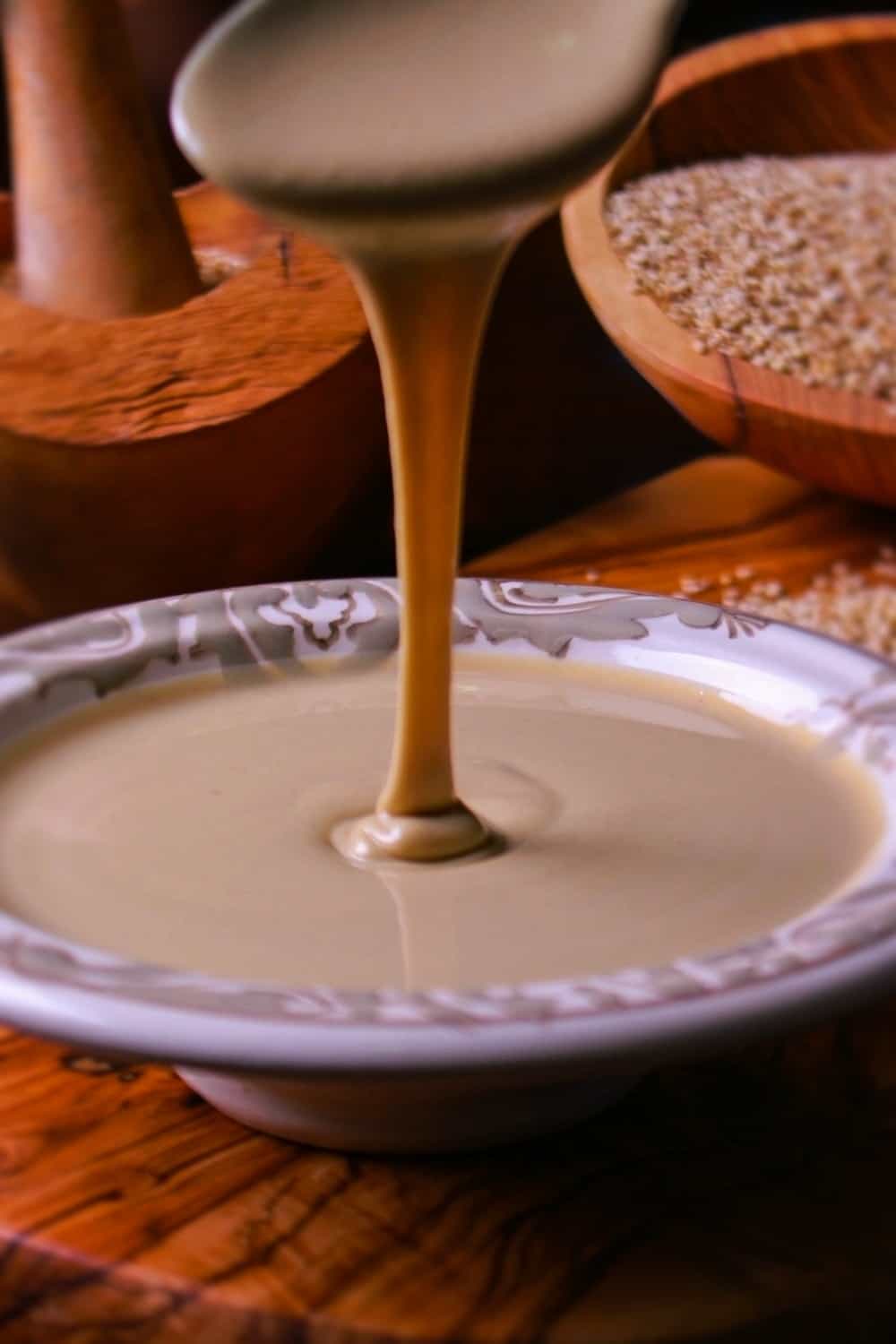
So, does tahini go bad? Yes, tahini will certainly go bad if you don’t handle it properly. In order to do that, you have to know some crucial pieces of information, i.e. a few important factors that determine the longevity of your tahini paste.
1. Type Of Tahini
The first factor that determines the longevity of tahini is the type of tahini itself, i.e. is it store-bought tahini or homemade tahini? Generally speaking, all store-bought food lasts longer than homemade food.
The reason is obvious. Unlike homemade tahini, store-bought ones contain preservatives that protect it from harmful bacteria that are the main cause of spoilage.
Also, most of the store-bought tahinis are pasteurized and that also extends their shelf life.
Pasteurization is a process in which food is treated with mild heat in order to destroy pathogenic microorganisms that can lead to food spoilage.
2. Opened Or Unopened Jar Of Tahini
The next factor you should consider is if your tahini jar has been opened or not. Since tahini tends to have a relatively long shelf life, an unopened tahini jar can stay relatively longer in your pantry.
However, once you open your jar of tahini, it will immediately come into contact with air and that will automatically shorten its shelf life. Although it can be kept at room temperature for some time, it is best to store it in the fridge once opened, just to be safe.
3. Type Of Sesame Seeds
Although most people don’t know this, sesame seeds used for making tahini paste play a huge role in its shelf life. More precisely, if tahini paste is made from roasted seeds, it will last much longer than the one made from raw sesame seeds.
Tahini made from roasted seeds can stay good for up to 3 years, while the raw seed version can last up to 6 months.
However, if you want to know precisely how long it will last, it is best to read what is written on the label, i.e. check the best-by date written on the label of both types of tahini to find the best answer.
One interesting thing is that tahini paste contains all the antioxidants from sesame seeds that act like a natural preservative.
4. The Way You Store Tahini
And the final factor is the storage method that you use. You can store your tahini paste at room temperature, in the refrigerator, or in the freezer. This will be based on the type of tahini that you’re dealing with and based on what you want.
Obviously, tahini paste will last longest if stored in the freezer and shortest if left at room temperature. Below, I will show you the best tips for storing your tahini paste properly. So, stay tuned.
How To Store Tahini Properly?
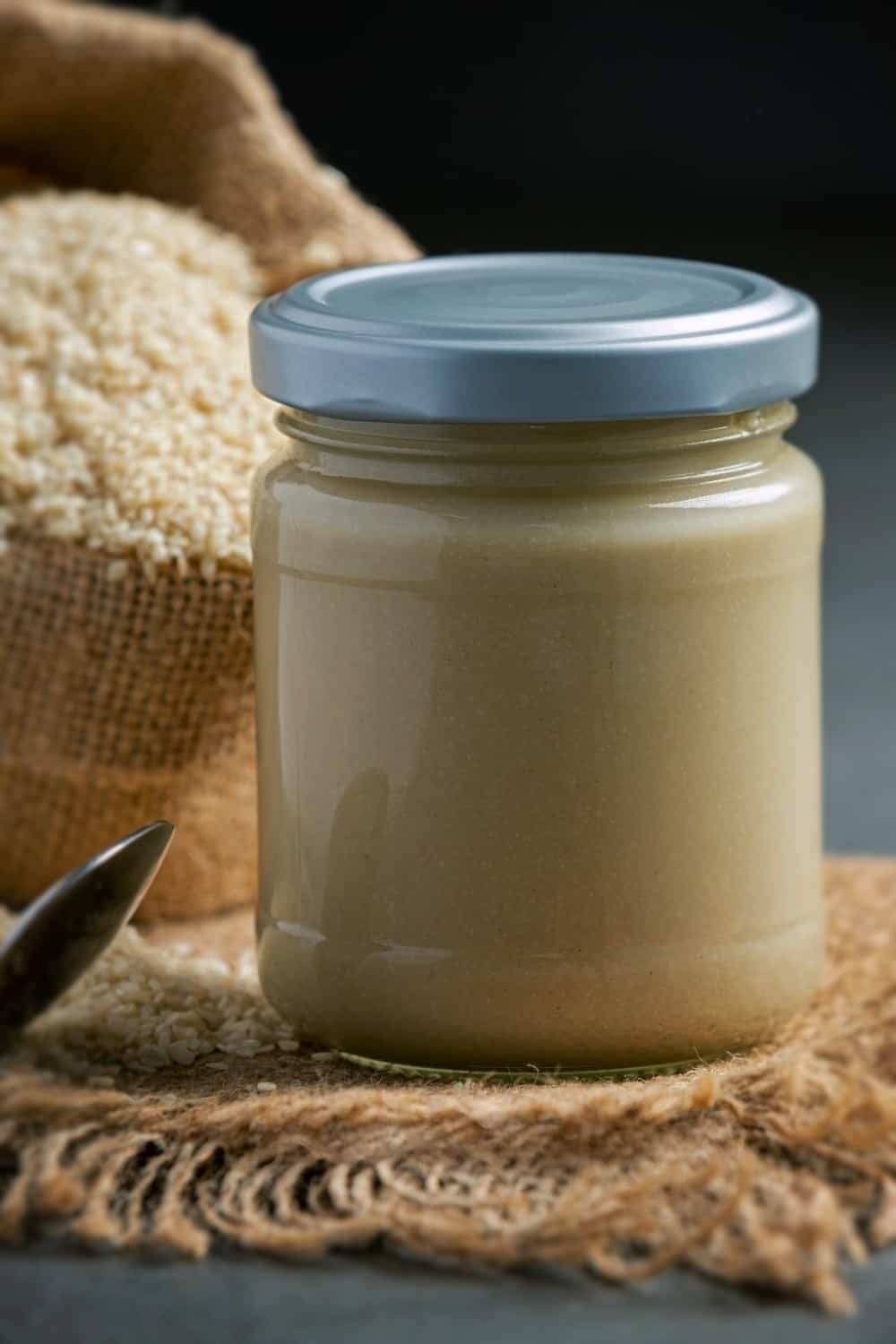
Storing tahini the right way is very important. Although it is very difficult to spoil tahini, if you do not store it the right way, it can go bad. In order to preserve the best quality of your tahini paste, here are some important tips for storing tahini.
• Store tahini in the pantry for short-term storage.
• Find a cool place in the kitchen cabinet to store your tahini. (Do the same when storing cream of tartar.)
• Avoid leaving your tahini somewhere where it is exposed to direct sunlight, as well as close to strong heat sources.
• Make sure to properly close the lid of your tahini paste jar because tahini is mostly ruined by oxidation.
• Always try to find a secure jar or bottle that comes with a secured lid for your homemade tahini.
• If you want to store your tahini for a longer time, it is best to store it in the refrigerator.
• When storing tahini in the refrigerator, blend it with a teaspoon of water, sesame oil, or even olive oil to maintain its moisture. If you don’t do that, it will lose its moisture and become ice cream-like.
• In order to blend tahini with water or sesame oil before storing it in the fridge, you can use an immersion blender or food processor.
• Make sure that the container in which tahini is stored is properly sealed in order to avoid cross-contamination with other food.
• Avoid storing tahini paste close to the fridge door because temperature changes there quickly and that is not good for the paste.
Can You Freeze Tahini?
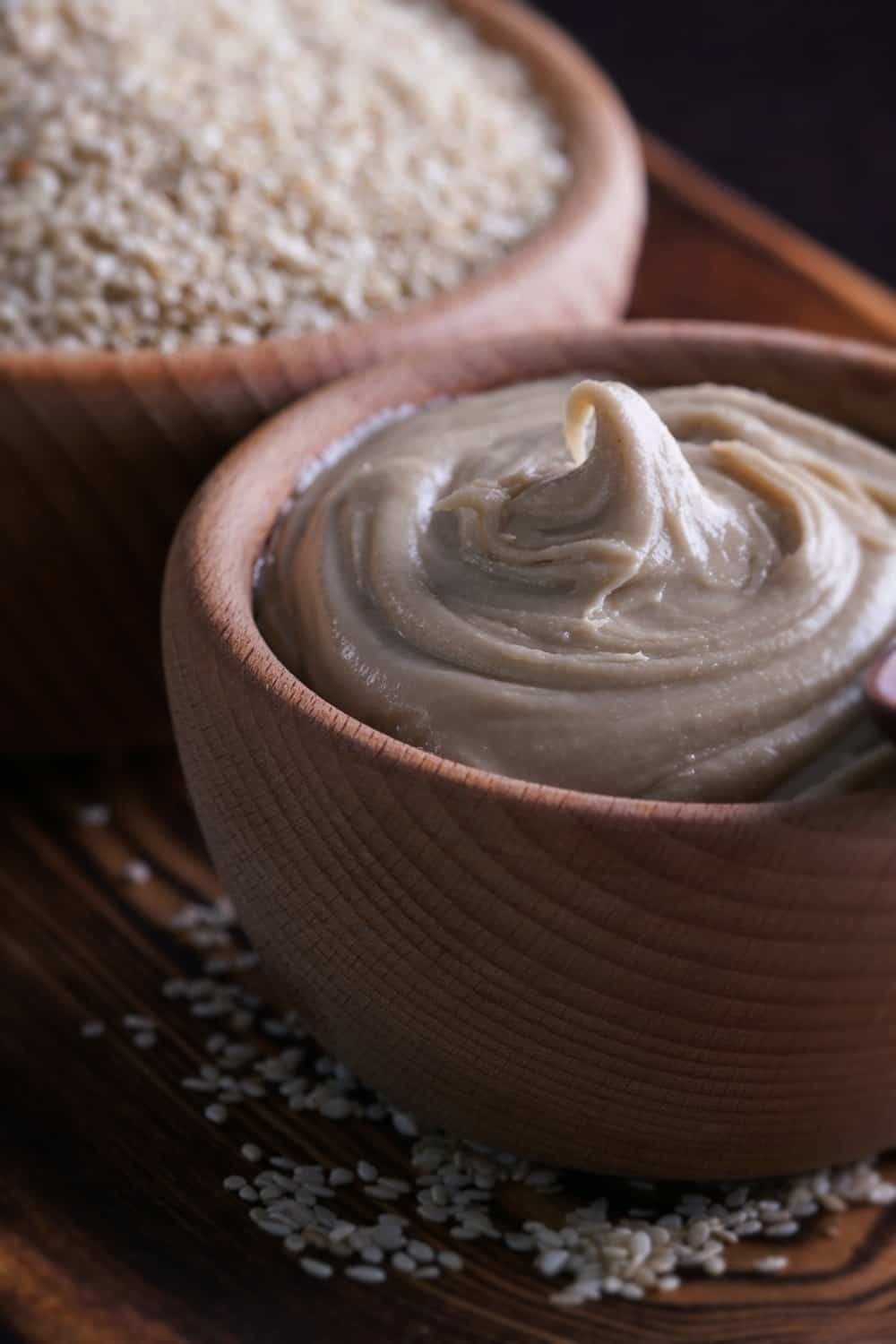
Yes, aside from storing tahini in the pantry or in the refrigerator, you can also store it in the freezer. But, it is not that simple, i.e. you can’t just put the jar of tahini in the freezer. There are some steps that you need to follow in order to freeze tahini properly.
Guideline For Freezing Tahini Paste
If you don’t want to use tahini right away or if you have some leftover tahini, there are two ways to freeze your tahini paste. You can freeze it in scoop portions or you can use an ice cube tray.
Freezing Tahini In Scoop Portions
Here are the steps that you need to follow in order to extend the shelf life of tahini in the freezer.
STEP 1: Use one baking sheet and line it with parchment paper.
STEP 2: Split your tahini paste into small portions by laying those portions on the baking sheet.
STEP 3: Pre-freeze your tahini paste by placing the baking sheet with small portions of tahini into the freezer. You can let it freeze there for 2 hours or overnight.
STEP 4: After those small tahini portions are frozen, you can transfer them into an airtight container or into a freezer bag. Make sure to suck out all the remaining air and seal the container or the bag properly.
STEP 5: Label the bag or container with the exact date of storage and freeze your tahini.
Freezing Tahini By Using Ice Cube Tray
Another, faster way to freeze tahini is by using an ice cube tray. Here are the steps.
STEP 1: Use one tray and line it with plastic wrap.
STEP 2: Fill the tray with tahini.
STEP 3: Now, you can slice the wrap for each slot in the tray and use the extra wrap to wrap the tahini with another layer.
STEP 4: When the tahini is wrapped properly, you can put those wrapped portions of tahini in a container and seal them properly.
STEP 5: Finally, you can label the container with the exact date of storage and freeze your tahini. Your tahini can stay in the freezer for up to 3-4 months, as stated by the USDA. Actually, it is safe indefinitely in the freezer but you shouldn’t keep it frozen for too long due to quality loss.
Guideline For Defrosting Tahini
After a couple of months in the freezer, it is time to use your frozen tahini. But of course, you first have to thaw it properly. Here are the steps that you need to follow.
STEP 1: First, you need to take a portion of tahini that you want to use at the time and transfer it to a bowl.
STEP 2: Cover the bowl with a plate or towel and let it defrost for about 15 minutes.
STEP 3: While defrosting, you can stir it a few times to prevent the formation of a layer of oil on top of the paste.
STEP 4: After it has reached room temperature, mix it by using a whisk or fork to maintain its consistency and texture.
How Long Does Tahini Last?
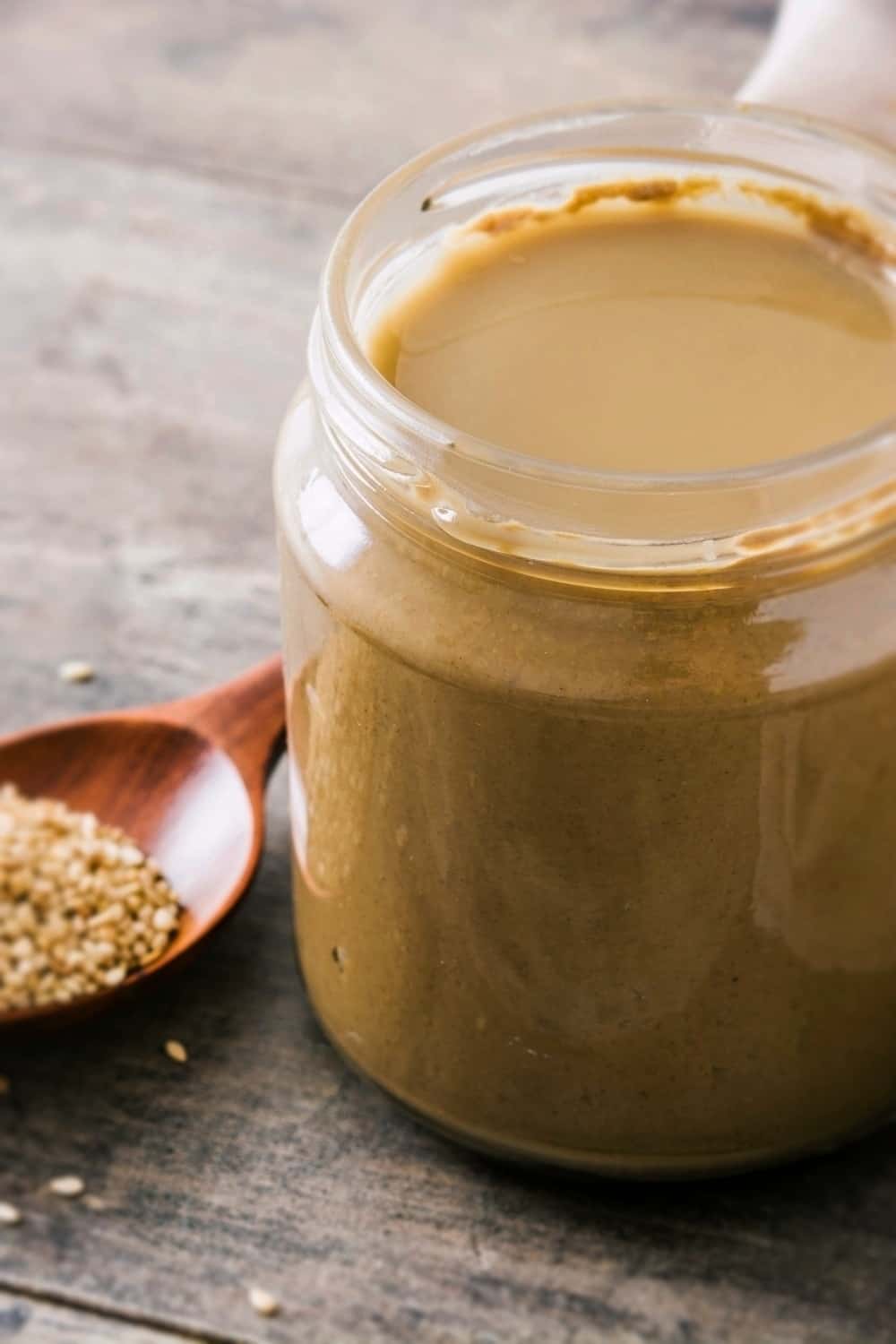
The longevity of tahini paste depends on the type of tahini, whether it has been opened or not, the storage method, and the type of sesame seeds from which it is made.
Store-Bought Tahini
I will begin with store-bought tahini that can last longer because of the stabilizers and preservatives incorporated during the making process.
• Unopened store-bought tahini can last for up to 6 months after the “best by” date if stored at room temperature.
• Unopened store-bought tahini can last for about 12 months or more if stored properly in the fridge.
• Opened tahini can last for about 4-6 months if stored at room temperature.
• Opened tahini can last about 6 months after the “best by” date if stored properly in the refrigerator.
If you want to really enjoy your store-bought tahini, I warmly recommend you to consume it within 3-4 weeks after buying because, in that time, it retains its freshness.
Homemade Tahini
Homemade tahini doesn’t last as long as store-bought ones because it doesn’t contain preservatives and therefore it is more prone to spoilage. Also, don’t ever leave your homemade tahini jar open because it will spoil quickly.
• Unopened homemade tahini can last up to 1-3 days if stored at room temperature.
• Unopened homemade tahini can last up to 7 days if stored properly in the fridge.
It is best to consume your homemade tahini right away because, only then, it will be entirely fresh and safe for consumption.
Also, if you buy organic tahini, consume it at the same time as a homemade one because it also doesn’t contain any preservatives.
How Can You Tell If Tahini Has Gone Bad?
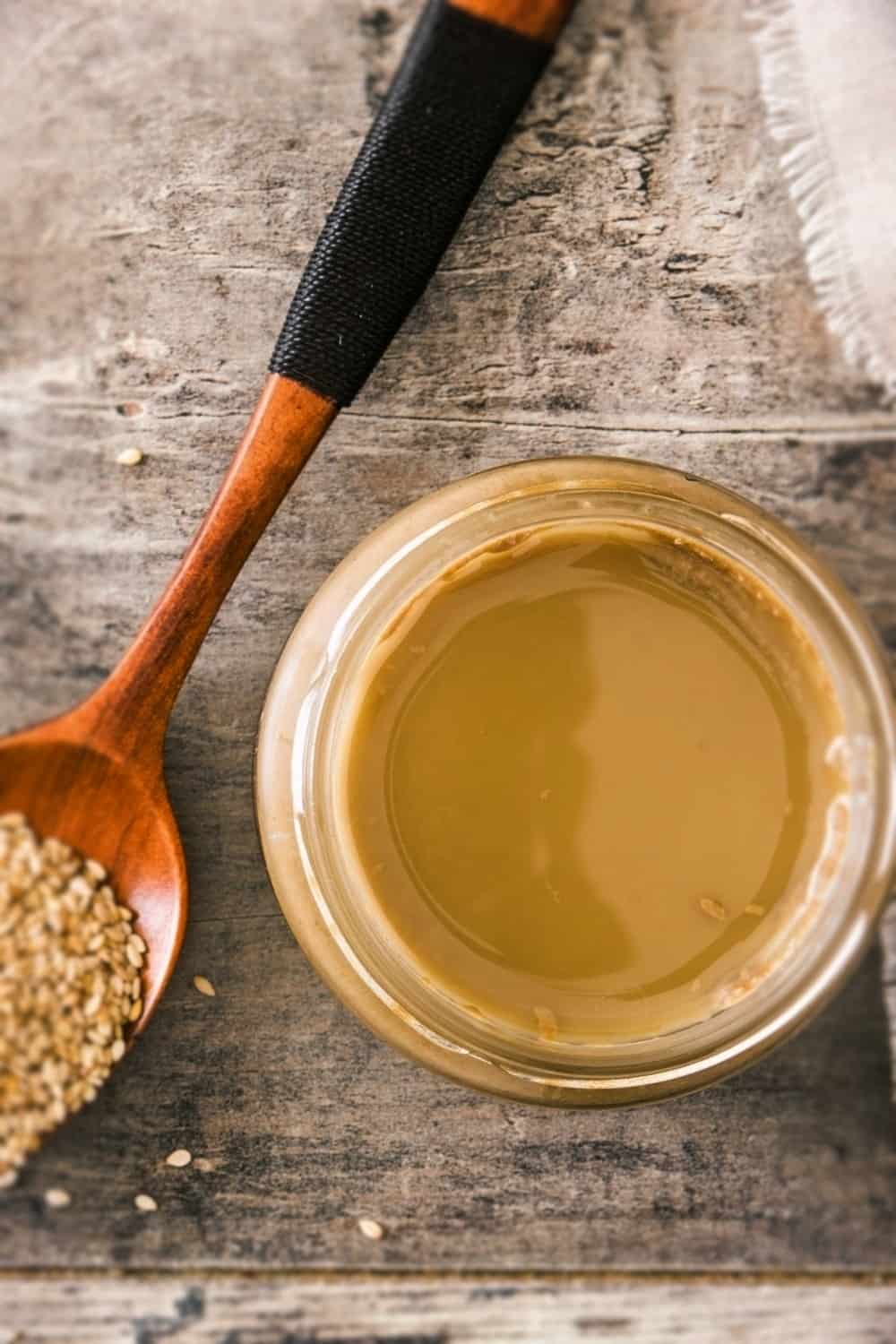
Although tahini paste can not go bad that easily, even that can happen sometimes. There are some signs by which you can conclude that your tahini paste has gone bad. Here are those signs.
• Rancid Smell: Although rancid tahini won’t really harm you if you eat it occasionally, it is still not a good idea to eat it in that state because it will have an unpleasant taste and aroma. It will smell bitter and soapy-like, so if you sense that, know that it is probably rancid.
• Different Texture And Consistency: If you notice that your tahini has become solid and lost its freshness and consistency, it might be a sign of spoilage.
• Unpleasant Taste: If you are still not sure about your senses when it comes to the smell and appearance of your tahini paste, try a small scoop of it. If you sense a weird taste that reminds you of gas or old overcooked oil, discard it immediately.
• Mold: Although it does not happen much that mold grows on the tahini paste, it can happen, especially on the mouth of the jar. If you see any mold on your tahini, throw it away immediately because it can be dangerous to your health if you consume it.
Find out if onions and asparagus have gone bad.
FAQs
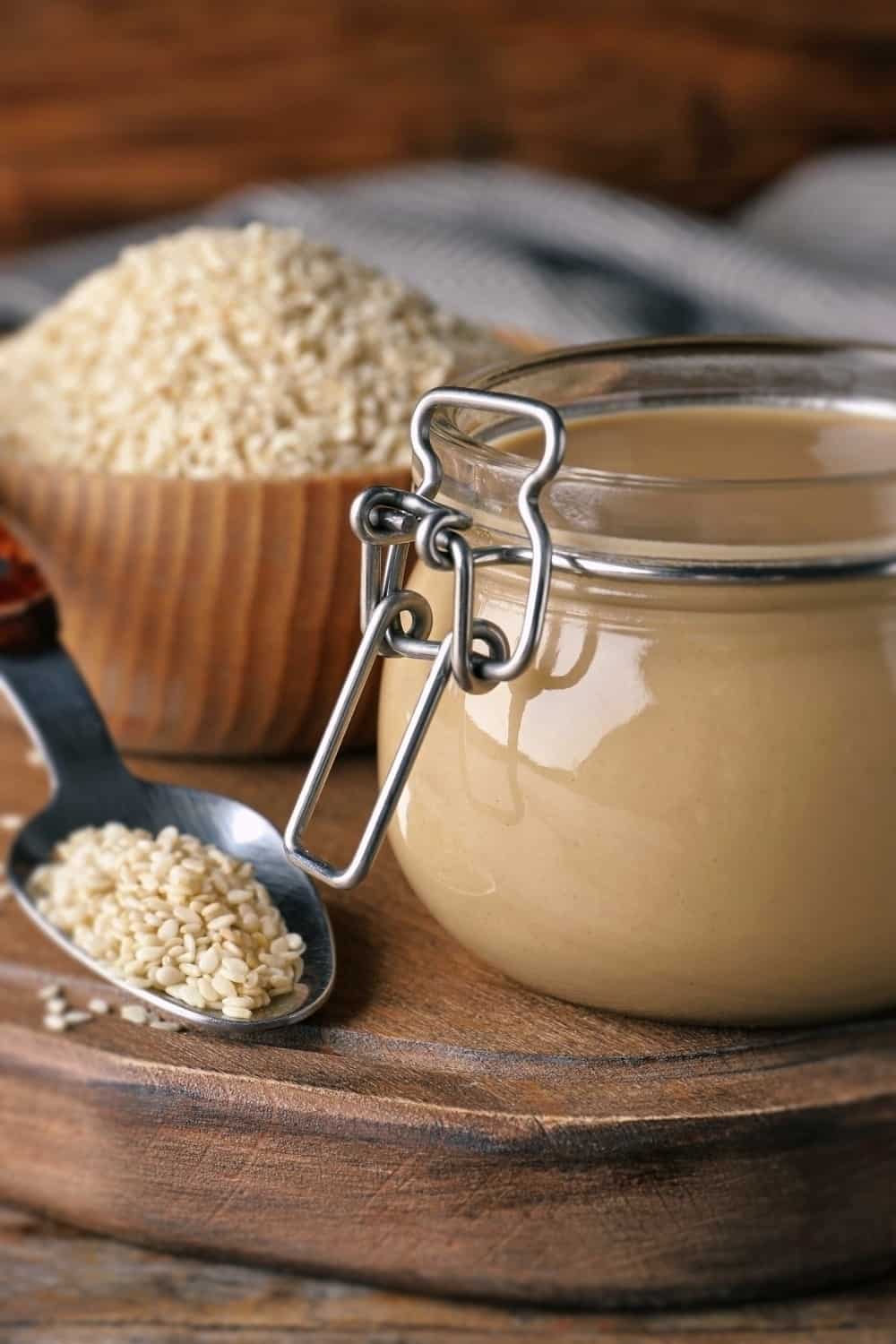
Is It OK To Use Expired Tahini?
Since store-bought tahini usually comes with a “best by” date rather than an “expiration date”, you usually can consume it after that date.
Use unopened store-bought tahini 6 months after the expiration date if stored at room temperature or in the fridge.
How Long Can Tahini Be Stored In The Fridge?
Unopened store-bought tahini can be stored in the fridge for up to 12 months.
Opened store-bought tahini paste can be stored in the fridge for about 6 months after the “best by” date.
Homemade tahini paste can last for up to one week if stored in the fridge properly.
How Can I Reduce The Bitterness Of Tahini?
In order to reduce the bitterness of tahini, you can add a little lemon juice to reduce that unpleasant taste.
You can also add a little salt if you want, but just a little.
Final Words
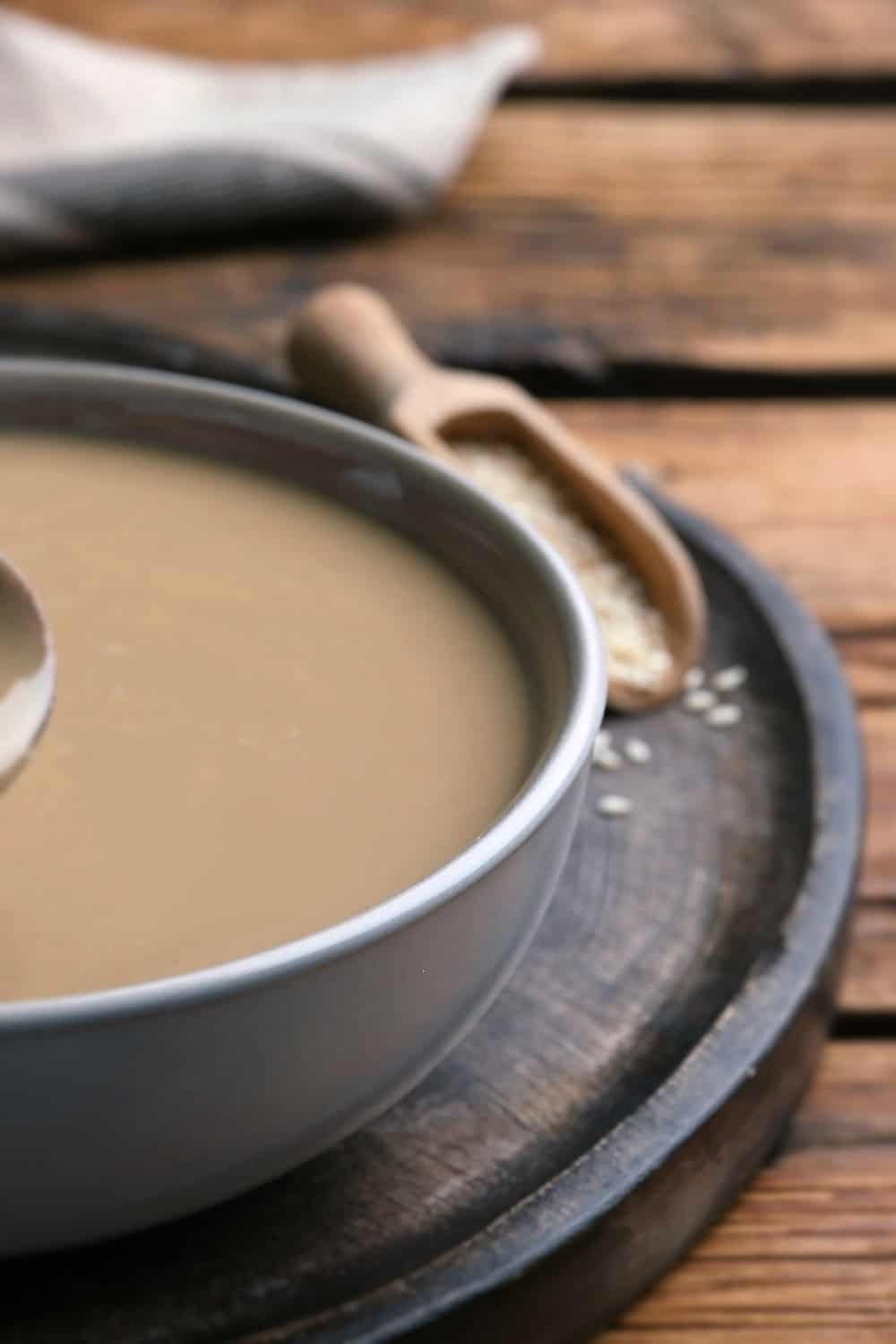
So, does tahini go bad? Of course, it does bad eventually, just like any other type of food. Although it is not easy for tahini paste to spoil, you should be careful though.
In this article, you were able to find out that the type of tahini, the type of sesame seeds used for its making, as well as storage method all, determine the longevity of tahini paste.
Also, I explained what are the best ways to store your tahini properly and finally, what are the signs of spoiled tahini if you are not sure whether it has gone bad or not. All in all, those are all the important information related to tahini shelf life and tahini spoilage that you should know.


